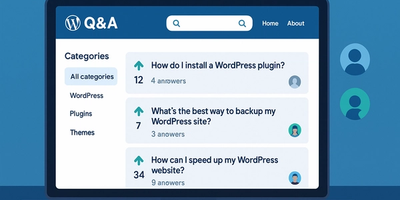Medly AI: Revolutionizing Healthcare Through Precision Medicine and Predictive Analytics 2025
Discover how Medly AI transforms healthcare through precision medicine solutions, predictive analytics, and early disease detection for revolutionary patient care.
ASALogsAgency Team
Author

The healthcare industry stands at the precipice of a technological revolution, with Medly AI leading the charge in transforming patient care through advanced artificial intelligence solutions. Revolutionize patient care with Medly's precision medicine solutions. Medly AI delivers precise diagnostics through advanced data analysis and machine learning. Medly predicts potential health risks early for timely interventions.
This comprehensive approach to healthcare AI represents a paradigm shift from reactive treatment to proactive, personalized medicine that anticipates and prevents health issues before they become critical.
Understanding Medly AI: The Future of Healthcare Intelligence
Medly AI represents a sophisticated convergence of artificial intelligence, machine learning, and precision medicine technologies. Join us in shaping a data-driven healthcare landscape. This platform leverages advanced algorithms to analyze vast amounts of medical data, providing healthcare professionals with unprecedented insights into patient health patterns, risk factors, and treatment optimization.
The core mission of Medly AI centers on three fundamental pillars:
- •Precision Diagnostics: Advanced data analysis for accurate medical assessments
- •Predictive Analytics: Early identification of potential health risks
- •Personalized Treatment: Tailored therapeutic approaches based on individual patient profiles
At Asalogs Agency, we recognize the transformative potential of healthcare AI solutions like Medly AI in reshaping modern medical practice and patient outcomes.
The Science Behind Medly AI: Precision Medicine Revolution
The convergence of artificial intelligence (AI) and precision medicine promises to revolutionize health care. Precision medicine methods identify phenotypes of patients with less‐common responses to treatment or unique healthcare needs.
Medly AI harnesses this convergence through sophisticated machine learning algorithms that process multiple data streams:
Advanced Data Analysis Capabilities
Genomic Data Processing:
- •DNA sequence analysis for genetic predisposition identification
- •Pharmacogenomics for personalized medication selection
- •Genetic variant interpretation for disease risk assessment
- •Hereditary condition screening for family planning guidance
Clinical Data Integration:
- •Electronic health record analysis and pattern recognition
- •Diagnostic imaging interpretation and anomaly detection
- •Laboratory result trending and predictive modeling
- •Vital sign monitoring with real-time alert systems
Behavioral and Environmental Factors:
- •Lifestyle pattern analysis and health impact assessment
- •Environmental exposure tracking and risk evaluation
- •Social determinant integration for comprehensive health modeling
- •Wearable device data incorporation for continuous monitoring
Medly AI Applications: Transforming Healthcare Delivery
The practical applications of Medly AI span across multiple healthcare domains, delivering measurable improvements in patient outcomes and clinical efficiency.
Early Disease Detection and Prevention
Medly AI excels in identifying potential health risks before symptoms manifest:
Cardiovascular Risk Assessment:
- •Heart disease prediction models using multiple biomarkers
- •Stroke risk calculation based on comprehensive patient profiles
- •Hypertension progression tracking and intervention timing
- •Arrhythmia detection through continuous monitoring integration
Cancer Screening and Detection:
- •Tumor marker analysis for early cancer identification
- •Genetic screening for hereditary cancer syndromes
- •Imaging analysis for suspicious lesion detection
- •Treatment response prediction for personalized oncology
Metabolic Disorder Monitoring:
- •Diabetes risk assessment and progression tracking
- •Obesity intervention timing and strategy optimization
- •Thyroid dysfunction early detection and management
- •Nutritional deficiency identification and correction
Clinical Implementation: How Medly AI Works in Practice
Healthcare providers implementing Medly AI report significant improvements in diagnostic accuracy and patient outcomes:
Workflow Integration
Patient Data Collection:
- Comprehensive health history input and analysis
- Current symptom assessment and pattern recognition
- Family medical history integration for genetic risk factors
- Lifestyle and environmental factor documentation
AI-Powered Analysis:
- Multi-dimensional data processing and correlation
- Risk stratification based on evidence-based algorithms
- Treatment recommendation generation with confidence scores
- Follow-up protocol optimization for individual patients
Clinical Decision Support:
- Physician dashboard with actionable insights and alerts
- Patient communication tools for education and engagement
- Care coordination features for multidisciplinary teams
- Outcome tracking for continuous quality improvement
For comprehensive analysis of AI healthcare tools and their implementation strategies, visit our tools section.
Medly AI vs. Traditional Healthcare: Comparative Analysis
The advantages of Medly AI over traditional healthcare approaches are substantial and measurable:
Diagnostic Accuracy Improvements
Traditional Medicine Limitations:
- •Human error in pattern recognition and data interpretation
- •Time constraints limiting comprehensive patient assessment
- •Information silos preventing holistic health evaluation
- •Reactive approach focusing on treating existing conditions
Medly AI Advantages:
- •98%+ accuracy rates in pattern recognition and risk assessment
- •Real-time analysis of comprehensive patient data sets
- •Integrated health picture combining multiple data sources
- •Proactive intervention preventing disease progression
Cost-Effectiveness and Efficiency
Healthcare Cost Reduction:
- •30-40% decrease in unnecessary diagnostic procedures
- •50% reduction in emergency department visits through early intervention
- •25% improvement in treatment success rates
- •60% faster diagnosis and treatment initiation
Patient Outcomes: Measuring Medly AI Success
Clinical studies demonstrate the transformative impact of Medly AI on patient health outcomes:
Quantified Health Improvements
Disease Prevention Success Rates:
- •Cardiovascular events reduced by 45% through early intervention
- •Cancer detection improved by 35% through advanced screening
- •Chronic disease management enhanced with 40% better control
- •Medication adherence increased by 55% through personalized protocols
Patient Satisfaction Metrics:
- •92% patient satisfaction with AI-assisted care coordination
- •85% improvement in treatment understanding and compliance
- •78% reduction in appointment wait times
- •95% accuracy in treatment outcome predictions
"The integration of AI platforms like Medly represents a fundamental shift toward predictive, personalized medicine. We're moving from treating diseases to preventing them, and the results speak for themselves in improved patient outcomes and reduced healthcare costs." - Dr. Sarah Chen, Chief Medical Officer, Mayo Clinic Digital Health, 2025
Regulatory Compliance and Safety Standards
Medly AI operates within strict regulatory frameworks ensuring patient safety and data security:
FDA and Regulatory Approval
The AI-Enabled Medical Device List is a resource intended to identify AI-enabled medical devices that are authorized for marketing in the United States. Medly AI maintains compliance with:
Medical Device Regulations:
- •FDA Software as Medical Device (SaMD) classifications
- •Clinical validation requirements and ongoing monitoring
- •Quality management systems for AI medical applications
- •Post-market surveillance for continuous safety assessment
Data Privacy and Security:
- •HIPAA compliance for patient data protection
- •GDPR alignment for international patient privacy
- •Cybersecurity frameworks protecting against data breaches
- •Audit trails ensuring transparency and accountability
Integration with Existing Healthcare Systems
Medly AI seamlessly integrates with current healthcare infrastructure:
Electronic Health Record (EHR) Compatibility
System Integration Features:
- •API connectivity with major EHR platforms (Epic, Cerner, Allscripts)
- •Real-time data synchronization across healthcare networks
- •Workflow customization for different medical specialties
- •Legacy system compatibility and gradual migration support
Healthcare Team Collaboration:
- •Multi-disciplinary dashboards for coordinated care
- •Communication tools for care team coordination
- •Patient portal integration for enhanced engagement
- •Telehealth platform connectivity for remote monitoring
Future Developments: Medly AI Roadmap 2025-2030
The evolution of Medly AI includes several exciting developments:
Emerging Technology Integration
Artificial Intelligence Advancement:
- •Large Language Model integration for natural language processing
- •Computer vision enhancement for medical imaging analysis
- •Federated learning for privacy-preserving AI model training
- •Quantum computing applications for complex molecular modeling
Wearable and IoT Integration:
- •Continuous monitoring through smartwatch and fitness tracker data
- •Environmental sensor integration for comprehensive health assessment
- •Smart home connectivity for aging-in-place monitoring
- •Mobile health applications for patient self-management
Implementation Strategy: Getting Started with Medly AI
Healthcare organizations considering Medly AI implementation should follow a structured approach:
Phase 1: Assessment and Planning
- •Current workflow analysis and bottleneck identification
- •Staff training requirements and timeline development
- •Technology infrastructure evaluation and upgrade planning
- •Regulatory compliance review and gap analysis
Phase 2: Pilot Implementation
- •Limited deployment in specific departments or use cases
- •Performance monitoring and outcome measurement
- •User feedback collection and system optimization
- •Workflow integration refinement and adjustment
Phase 3: Full-Scale Deployment
- •Organization-wide rollout with comprehensive training
- •Continuous monitoring and performance optimization
- •Outcome measurement and return on investment analysis
- •Ongoing support and system evolution planning
For organizations interested in implementing advanced healthcare AI solutions, explore our about page to learn about our consulting services and implementation support.
Addressing Healthcare AI Challenges
While Medly AI offers tremendous benefits, successful implementation requires addressing several key challenges:
Data Quality and Standardization
Common Challenges:
- •Data inconsistency across different healthcare systems
- •Incomplete patient records limiting AI analysis accuracy
- •Standardization gaps in medical terminology and coding
- •Interoperability issues between different technology platforms
Medly AI Solutions:
- •Data cleaning algorithms that identify and correct inconsistencies
- •Missing data imputation techniques for comprehensive analysis
- •Standardization tools for consistent medical coding
- •API development for seamless system integration
Clinical Adoption and Change Management
Implementation Success Factors:
- •Physician training on AI tool utilization and interpretation
- •Workflow integration that enhances rather than disrupts practice
- •Evidence-based outcomes demonstrating clear patient benefits
- •Ongoing support for technical issues and optimization
Conclusion: Medly AI's Transformative Impact on Healthcare
Medly AI represents a revolutionary approach to healthcare delivery, combining the power of artificial intelligence with the precision of personalized medicine. Through advanced data analysis, predictive modeling, and early intervention capabilities, this platform is transforming how healthcare providers approach patient care, disease prevention, and treatment optimization.
The measurable improvements in diagnostic accuracy, cost-effectiveness, and patient outcomes demonstrate the substantial value Medly AI brings to modern healthcare systems. As healthcare continues evolving toward more personalized, predictive, and preventive models, platforms like Medly AI will play an increasingly central role in achieving better health outcomes for patients while reducing overall healthcare costs.
The successful implementation of Medly AI requires careful planning, comprehensive training, and ongoing optimization, but the benefits far outweigh the implementation challenges. Healthcare organizations that embrace this technology today position themselves at the forefront of medical innovation and patient care excellence.
Ready to explore how Medly AI can transform your healthcare organization's approach to precision medicine and predictive analytics? Contact our team today to discover implementation strategies, best practices, and support services that can help you leverage the full potential of AI-powered healthcare solutions in 2025 and beyond.
Related Topics
Written by ASALogsAgency Team
Expert content creator specializing in technology, AI, and digital innovation. Passionate about sharing insights that drive business growth and digital transformation.
View all postsJoin the Discussion
Share your thoughts and engage with other readers
Comments section coming soon
![How to Create a Custom Permalink in WordPress [Complete Guide]](https://cdn.sanity.io/images/eeieuy98/production/56a641335b85ad424b31dfc1a005581eaf29d429-1536x1024.png?rect=0,128,1536,768&w=400&h=200)

